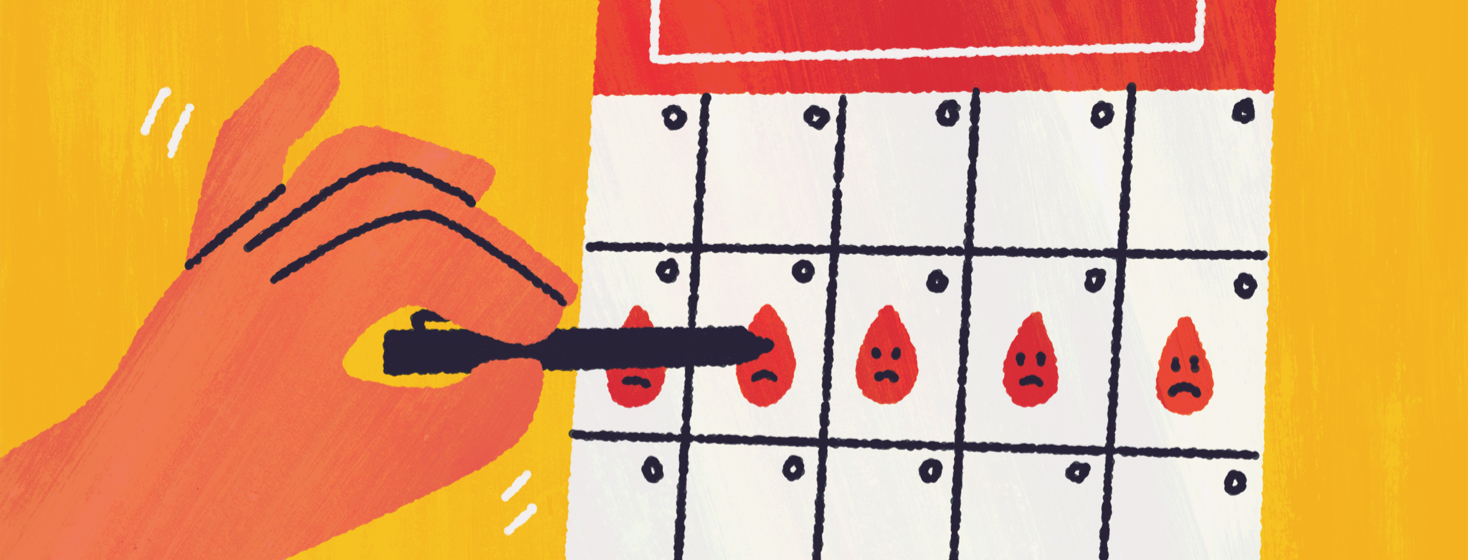8 Tips for Surviving Your Monthly Period When You Have IBD
Dealing with your period can be tough enough for lots of women, whether that's due to painful cramps, low moods, or zero energy.
Dealing with your period on top of IBD can be even more complicated, especially when some women find that their IBD is worse on their period.
Today I thought I'd share my top tips for surviving your monthly period when you also have Crohn's or ulcerative colitis thrown into the mix.
1. Keep a track of your period cycle
One of my top tips is to keep a track of your menstrual cycle since menstrual cycle irregularities and changes to your cycle can be common with IBD.
Not only will this give you an indication of when to expect your period, but you may notice different bowel habits that occur at different times of the month. For example, I always find my belly is happier the week after my period ends!
You can also track things like energy and mood. Tracking is also useful if you are starting a new medication as it can help you see if it affects your cycle.
2. Remember iron supplementing
If you are forgetful in taking your supplements regularly, make sure you keep track of your iron intake during the week of your period.
It's common for iron levels to dip at this point, but given that many of us with IBD are already low on iron, this can worsen fatigue considerably.
3. Don't panic if your IBD symptoms worsen
My IBD symptoms are always worse during my period, so if you notice a worsening of pain or diarrhea, don't immediately think it's a flare-up.
A study showed that IBD patients reported significantly more gastrointestinal symptoms such as nausea and pain compared to other controls when on their period, but this wasn't necessarily related to their IBD symptoms.1 This could be due to the role that female hormones play in gut health, although we still don't know the full extent of how it works.
4. Now is the time for self-care
Studies have also shown that IBD patients are more likely to suffer from PMS compared to healthy controls,1 so schedule self-care in the days leading up to and at the start of your period.
This can be simply a night in with a face mask or a catch-up with a friend.
5. Be mindful of pain relief during your period
Many period pain remedies can contain NSAIDs (like ibuprofen, which isn't recommended for IBD) and it's not always clear until you pay close attention to the label. Paracetamol (or Tylenol) is usually safer, but do talk to your doctor.
Alternatively, heat patches, hot water bottles, and herbal tea (such as peppermint or chamomile) might be helpful too.
6. Consider birth control
If your periods are particularly heavy and painful, some women find taking the birth control pill an effective remedy in making periods lighter and less painful. It doesn't work for everybody and you'll need to speak to your doctor about the pros and cons.
7. Don't rule out conditions other than Crohn's or UC
Don't assume that painful periods are definitely due to your IBD. It's worth noting that IBD can be connected to endometriosis. One study showed that those with endometriosis are 50% more likely to develop IBD, whilst between 2-3.4% of IBD patients have endometriosis compared to 0-1% of healthy control.2
Whilst it's still rare to have both conditions, there does seem to be a link between the two, so it's worth speaking to your doctor to rule this out.
8. You don't need to use tampons
Having Crohn's or UC shouldn't impact the menstrual products you use, but women who have fistulas or perianal disease may prefer not to use tampons for this reason.
I personally find reusable period pants much more comfortable! So it could be worth experimenting with different products to find one that works for you.
I hope these tips have been useful. Let me know how you deal with your period and IBD: Does it make symptoms better or worse for you?

Join the conversation